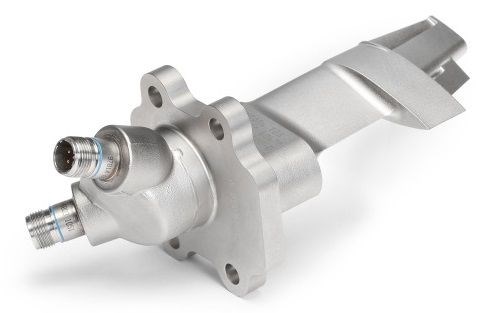FAA Clears First Additive Manufactured Part for Flight in a GE Commercial Jet Engine
A cobalt-chrome temperature sensor housing is being retrofit to GE90 engines used by Boeing.
Share
Read Next

GE Aviation has announced that the cobalt-chrome housing for a compressor inlet temperature sensor has become the first additive-manufactured part to be certified by the U.S. Federal Aviation Administration to fly inside GE commercial jet engines. The company has begun working with Boeing to retrofit more than 400 GE90-94B jet engines with this new part.
This housing won’t be unique for long, the company says. Flight tests are underway for the LEAP engine, developed through a joint venture between GE Aviation and France’s Safran, which uses 19 additively manufactured fuel nozzles. This engine is aimed at new, narrow-body planes such as the Boeing 737MAX and the Airbus A320neo, and GE says more than 8,500 orders for the engine have already been received.
Read more in this statement from GE.
Related Content
-
New Zeda Additive Manufacturing Factory in Ohio Will Serve Medical, Military and Aerospace Production
Site providing laser powder bed fusion as well as machining and other postprocessing will open in late 2023, and will employ over 100. Chief technology officer Greg Morris sees economic and personnel advantages of serving different markets from a single AM facility.
-
Two 12-Laser AM Machines at Collins Aerospace: Here Is How They Are Being Used
With this additive manufacturing capacity, one room of the Collins Iowa facility performs the work previously requiring a supply chain. Production yield will nearly double, and lead times will be more than 80% shorter.
-
3D Printed Lattice for Mars Sample Return Crash Landing: The Cool Parts Show Bonus
NASA Jet Propulsion Laboratory employs laser powder bed fusion additive manufacturing plus chemical etching to create strong, lightweight lattice structures optimized to protect rock samples from Mars during their violent arrival on earth.











